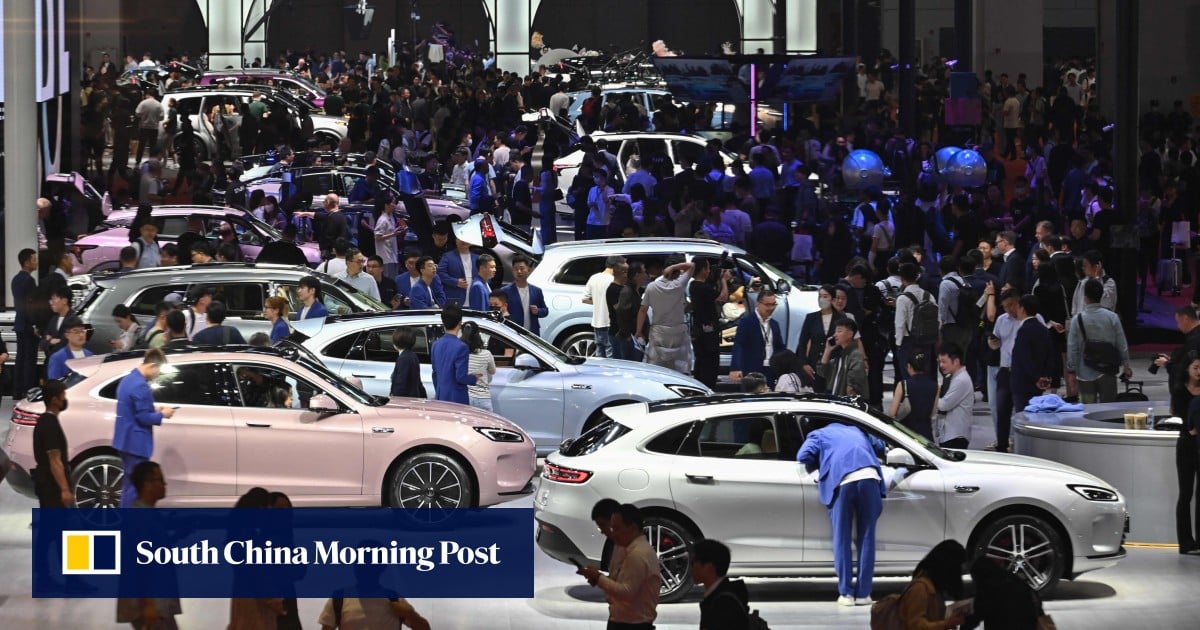BEIJING - Challenges facing mankind, such as ageing populations, pandemics and climate change, call for the sharing of ideas, resources and expertise between countries, Deputy Prime Minister Heng Swee Keat said on March 27 at a forum in China.
Singapore seeks to contribute to this global effort by connecting the best minds globally to advance these goals, he said at the Beijing Zhongguancun Forum, an annual showcase for Chinese technology.
DPM Heng cited the Campus for Research Excellence and Technological Enterprise (Create), which was established in Singapore in 2012 to bring together top global universities, including Cambridge and Shanghai Jiaotong, to collaborate on research.
In 2024, the Create laboratory at the National University of Singapore, established by the National Research Foundation which DPM Heng chairs, launched a research programme on decarbonisation to gather the best researchers globally to work on green economic growth.
The lab’s next programme will focus on promoting healthy and successful longevity, he added, as countries from Singapore to China and Germany face challenges with ageing populations.
DPM Heng is on a four-day working visit to China, where he is meeting senior Chinese officials and attending other engagements to advance bilateral cooperation. His trip is expected to end on March 27.
In his speech at the forum, he said he was glad that the event has over the years gathered talented scientists and leaders of research organisations, as well as companies, to come together to address global issues.
These issues include how to combine artificial intelligence (AI) with precision medicine to develop new vaccines and treatments, or to develop new sources of energy for sustainable growth, he said.
“Humans have a creative instinct which we should harness to improve the lives of our peoples. I’m glad that China and the rest of Asia are doing our part to advance scientific discovery,” he said.
He cited data from the World Intellectual Property Organisation (WIPO) that showed Asian countries account for 70 per cent of global intellectual property filings, with China, Japan and Korea among the top five.
The annual Zhongguancun forum, which started in 2007, is slated to discuss topics ranging from China’s latest achievements in basic research, cross-border data flows, green financing to industry applications for AI models.
At the conference venue in the Haidian district, “smart volunteers” or human-like robots sought to impress visitors by waving back at them. At a demonstration zone, a robotic arm brewed Pu’er tea while a robot calligraphy artist scratched out the Chinese characters for “Zhongguancun” using ink and paper.
The opening ceremony on March 27 featured other guests such as China’s Vice-Premier Zhang Guoqing, Beijing party secretary Yin Li, Beijing mayor Yin Yong and Mr Daren Tang, Director-General of WIPO.

Humanoid robot "volunteers" wave to visitors at the Zhongguancun Forum in Beijing.ST PHOTO: LIM MIN ZHANG
In his speech, Mr Zhang spoke about China’s innovation-driven development strategy, with major achievements in fields such as space, quantum and AI in 2024, with a research and development expenditure of 3.6 trillion yuan (S$663 billion).
He said high-tech fields have become the forefront of international competition and its main battleground given geopolitical developments, without mentioning any specific countries or events.
China will persist with its high-level opening up to the world, and is willing to work with other countries to explore mutually beneficial ways of scientific and technological cooperation, he added.
- Lim Min Zhang is China correspondent at The Straits Times. He has an interest in Chinese politics, technology, defence and foreign policies.
Join ST's Telegram channel and get the latest breaking news delivered to you.

 By The Straits Times | Created at 2025-03-27 09:28:13 | Updated at 2025-03-30 14:22:13
3 days ago
By The Straits Times | Created at 2025-03-27 09:28:13 | Updated at 2025-03-30 14:22:13
3 days ago








